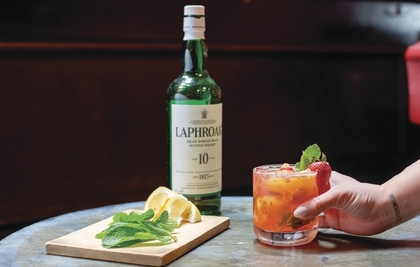Scotch whisky
Updated:
7 Sep 2020
Scotch whisky (uisge-beatha na h-Alba; often simply called whisky or Scotch) is malt whisky or grain whisky (or a blend of the two), made in Scotland. Scotch whisky must be made in a manner specified by law. As of 2018, there were 133 Scotch whisky distilleries operating in Scotland. All Scotch whisky was originally made from malted barley. Commercial distilleries began introducing whisky made from wheat and rye in the late 18th century. Scotch whisky is divided into five distinct categories: single malt Scotch whisky, single grain Scotch whisky, blended malt Scotch whisky (formerly called "vatted malt" or "pure malt"), blended grain Scotch whisky, and blended Scotch whisky. All Scotch whisky must be aged in oak barrels for at least three years. Any age statement on a bottle of Scotch whisky, expressed in numerical form, must reflect the age of the youngest whisky used to produce that product. A whisky with an age statement is known as guaranteed-age whisky. A whisky without an age statement is known as a no age statement (NAS) whisky, the only guarantee being that all whisky contained in that bottle is at least three years old. The minimum bottling strength according to the regulation is 40% alcohol by volume. The first known written mention of Scotch whisky is in the Exchequer Rolls of Scotland, 1494. Scotch whisky was known as aqua vitae, Latin for "water of life." Many Scotch whisky drinkers refer to a unit for drinking as a dram.




